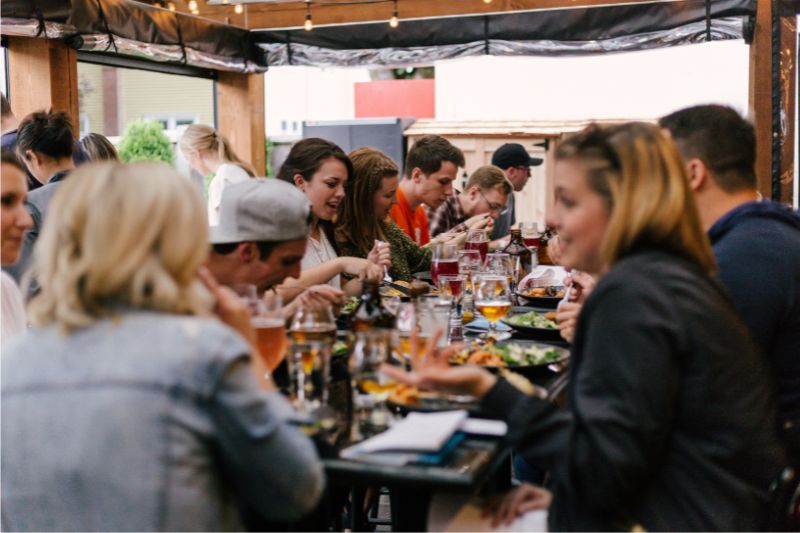No products in the cart.
Social Drinking: How Is It Done Across Different Cultures?

Depending on where a person lives, drinking alcohol can be viewed as a way to create social bonds, show respect, or even facilitate business meetings. Every culture has a different set of customs and rules surrounding social drinking, though. Those traditions can be both interesting to read about and useful to know. Read on to find out about social drinking etiquette in different parts of the world.
A Quick Caveat
Before discussing some of the most interesting aspects of social drinking cultures, a quick caveat is needed. This article refers to moderate, controlled drinking. Anyone struggling with an alcohol use disorder should avoid drinking, entirely, and seek help at the tricare inpatient recovery center.
When to Drink
In most cultures, it’s unusual to head out for a drink before lunch, although exceptions such as brunch hours in the United States or Fruhschoppen in Germany exist. However, there are plenty of countries where daytime drinking is commonplace and acceptable, although generally limited to one or two alcoholic beverages. In Russia, France, or Spain, for example, it’s considered perfectly normal to order drinks with lunch when out with friends, family, or coworkers.
In other places, the consumption of alcoholic beverages at social occasions is limited to the later hours of the day. In the UK, drinking is generally confined to the evening hours, as is also the case in the Czech Republic. In Iceland, social drinkers may start nights out after midnight and return home in the early hours of the morning.
Who Buys the Drinks?
Who pays for drinks and fills glasses is a matter that varies between countries. In the UK, social drinkers pride themselves on buying the entire group a round and will view people who fail to meet this requirement as bad drinking partners. In Spain, everyone buys their own drinks, which means the consumption of spirits is generally left until after the bill has been split.
In Japan, it’s considered rude for drinkers to fill their own glasses. Instead, social drinkers are supposed to fill the glasses of the people next to them. Business professionals traveling to Japan should also note that it’s considered impolite to turn down a drinking session with colleagues, as this tradition is an important part of workplace culture.
How to Toast
Just about every culture has a word for “cheers,” and toasting is a nearly ubiquitous practice. What’s more interesting than how the word “cheers” gets translated is how toasts are performed. In Germany, drinkers should never break eye contact with the person they are toasting. The same goes for both France and the Czech Republic. In Japan, the expectation is that people will turn their heads away from elders when they drink, including managers at work.
In Russia, there’s no one word for “cheers,” but there is a tradition of finishing the entire drink after a toast, and failing to do so can leave more traditional social drinkers feeling slighted. People who want to avoid offense should also keep their glasses raised until the toast is finished.
What to Do if People Don’t Drink
Not every culture encourages social drinking to the same level, so people traveling abroad may never have to worry about what to do if they’re offered a drink they don’t want to take. Even in places where regular social drinking is the norm, people with alcohol use disorders shouldn’t hesitate to just say no. There may be alternatives available such as non-alcoholic beers or wines, and if not, there’s nothing wrong with sticking to water.















Leave a Reply